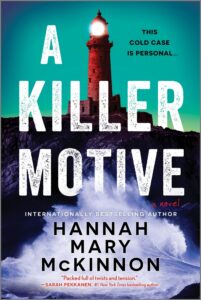Many years ago, while working at my corporate gig for an IT recruitment company, I had a staff appraisal. At some point during the conversation, my boss said, “I’ve realized you love being thrown into new situations and having to figure your way out. And you always figure a way out.”
While exceedingly complimentary, I’ll admit the remark stumped me a little. Sure, I’d brought all the accounting inhouse, built the entire back-office structure, set up subsidiaries in the UK, the Netherlands, and Germany, and led the due diligence as we sold the company, but while I’d never done any of those things before, and enjoyed them immensely, I hardly accomplished them alone. I led a team and had access to resources including legal and financial advisers who could guide us, so…no big deal.
Frankly, I’d never even considered myself much of a risk taker outside of work, either. I haven’t skydived (but I love scuba diving), I’ve never bungee jumped (but ziplining is brilliant), so I guess I’m somewhere in the middle. And, yes, okay, I flew from Switzerland to Canada in 1999 to meet a guy whom I’d stumbled across on a burgeoning internet by accident (thanks, ICQ!). We married 10 weeks later, so I guess that was a little nutty. But it’s been 26 years, and I reckon we’ll do another 26. Easy.
With all that in mind, when asked how my decades long corporate experience impacted my writing career, I’d typically reply that it helps significantly with my organizational skills. It’s true. I’m hugely structured and organized when working on my novels (and at home, where I’m cheerfully known as the Chief F@*!ing Organizer), and I’ve yet to miss a deadline. I’d also say my past gig helps with networking, because I had zero problems calling a random funeral home in the Catskills (talking on the phone doesn’t scare this Gen Xer) and asking if I could run a theory about hiding an extra body in a graveyard past them. Of course they said yes. Who could refuse such a weird question?
These skills have all been extremely helpful to me as an author, however, the influence of my former career runs deeper. Turns out, I’m not the only one who loves being chucked into choppy waters, because so do my characters. They always end up in dangerous situations they (nor I) have been in. Waking up on a beach with retrograde amnesia in You Will Remember Me, an anger management group exercise gone wrong in The Revenge List, hiring a hitman on the dark web in Never Coming Home, or the violent demise of a pop-rock band in Only One Survives, to name a few. Considering I was kicked out of the school band for being rubbish on the recorder, and I knew zero about the music industry, the last one was more than a bit of a challenge. Also, I suppose I shouldn’t forget what’s common in all my books—murder. Pinky swear I’ve never had to figure my way out of that.
In my latest novel, A Killer Motive, my protagonist’s younger brother goes missing from a beach party she takes him to, despite him being grounded by their parents. I don’t have a younger sibling, and nobody has ever disappeared on my watch, so this was another brand-new situation for me to get to grips with. But, needing another challenge because why not, there was more. Following my brilliant agent’s suggestion, I made Stella a true crime podcaster, as her having to draw on those resources to investigate her brother’s disappearance upped the ante more.
Do I know anything about true crime podcasts other than being an avid listener? Nope. Was it scary to give my protagonist a job I had no knowledge of? Again, no, because I knew I’d find people who could help me muddle my way through. In fact, I had the pleasure of meeting Laurah Norton, host of the One Strange Thing and The Fall Line podcasts, which helped deepen my research. As a side note, if you have the opportunity to hear Laurah speak, grab it with both hands because she’s incredible.
Being active in the IT recruitment space for years had a far greater impact than just helping me figure out how to reverse engineer deadlines and demystifying how to network. It also provided more than the ability to make Lucas in Never Coming Home a savvy, hot-shot consultant in the industry. It has allowed me to tackle subjects I’d never even encountered before. In turn, that means my characters can, for the most part, find an off-ramp to exit whatever nightmare scenario I’m putting them through.
There are many ways in which my writing and novels are undoubtedly better thanks to my former corporate gig, and I’ll always be cognizant of that. Still, and although it might give another and different kind of edge to my stories, you still won’t catch me skydiving any time soon.
***


















